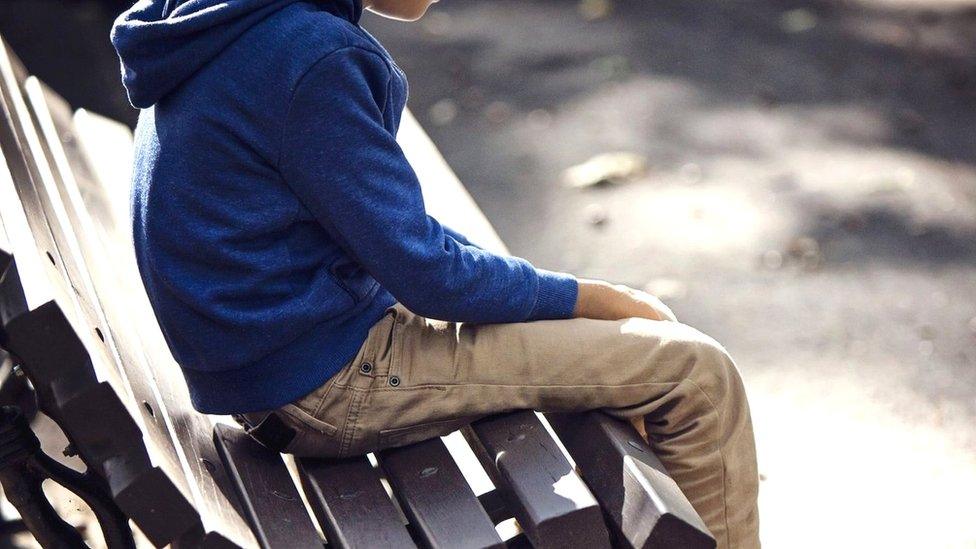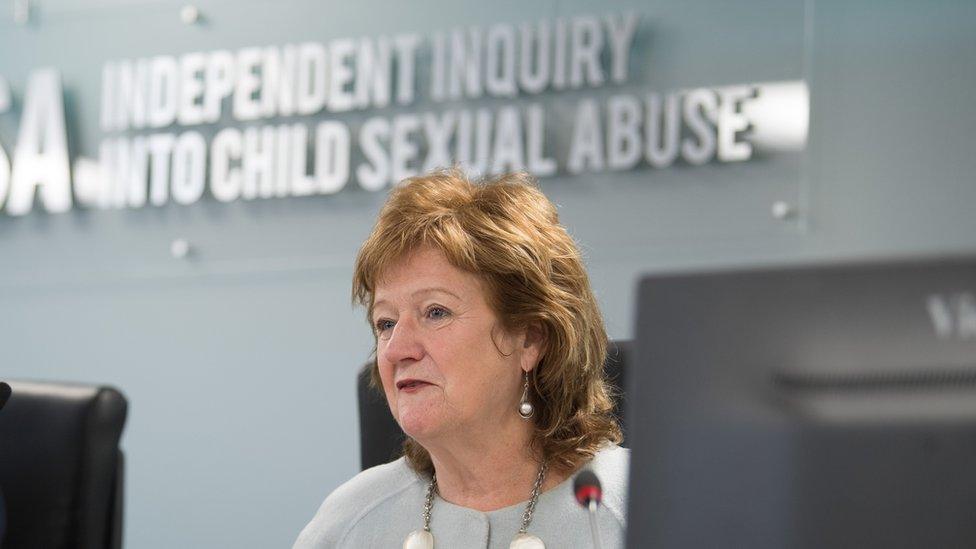Child sex abuse: Failure to report crimes to be made illegal
- Published

People who work with children in England will be legally required to report child sexual abuse or face prosecution under government plans.
The move - which is subject to a consultation - was recommended last year by the Independent Inquiry into Child Sexual Abuse (IICSA).
The home secretary told the BBC she wanted to correct one of the "biggest national scandals".
Suella Braverman is expected to set out more details in the coming days.
In its final report last October, the IICSA called the scale of abuse in England and Wales "horrific and deeply disturbing".
Around 7,000 victims of abuse provided testimonies to the seven-year inquiry, which was set up in the wake of the Jimmy Savile scandal.
It recommended prosecutions for anyone working with children who failed to report indications of sexual abuse.
The government is also promising more support for local police forces to tackle grooming gangs, with a new taskforce of specialist officers to help them with investigations into child sexual exploitation.
Downing Street said improved data on the ethnicity of perpetrators would also be used to help ensure "suspects cannot evade justice because of cultural sensitivities".
Prime Minister Rishi Sunak, who will launch the taskforce on Monday alongside other measures to tackle child sexual abuse, said: "For too long, political correctness has stopped us from weeding out vile criminals who prey on children and young women. We will stop at nothing to stamp out these dangerous gangs."
'Turned a blind eye'
Ms Braverman said while the fault lay with the perpetrators for "carrying out heinous and vile acts of depravity", there was also "a wilful turning of the blind eye" among authorities.
"Silence has enabled this abuse - we need to ensure a duty on those professionals that they can't get away with inaction," she told the BBC's Sunday with Laura Kuenssberg programme.
She said that in towns around the country, "vulnerable white girls living in troubled circumstances have been abused, drugged, raped, and exploited" by networks of gangs of rapists, which she claimed were "overwhelmingly" made up of British-Pakistani males.
Ms Braverman added that "cultural sensitivities" and concerns about "being called bigoted" had played a role in high-profile abuse scandals including in Rochdale and Rotherham.
An independent inquiry found at least 1,400 children had been subjected to sexual abuse in Rotherham between 1997 and 2013, with the perpetrators predominantly men of Pakistani heritage.
Later, Home Office-commissioned research found that, more generally, there was not enough evidence to suggest members of grooming gangs were more likely to be Asian or black than other ethnicities.
The Labour Mayor of West Yorkshire, Tracy Brabin, called Ms Braverman's comments a "dog whistle" - meaning a coded message designed to appeal to a certain group.
Shadow home secretary Yvette Cooper accused the government of "hopelessly inadequate, belated and narrow" efforts to tackle grooming, and of trying to get "short-term headlines".
Ministers had known about the role of gangs in child exploitation for years, she said, but had "failed to act" until now on a longstanding Labour recommendation to make reporting abuse mandatory.
She added: "Only 11% of child sexual abuse cases ends with a charge - down from 32% seven years ago."
In an earlier article written for the Mail on Sunday, external, Ms Braverman said she was committing to introducing mandatory reporting across the whole of England.
The "overwhelming majority" of safeguarding professionals, such as teachers and social workers, saw it as their "duty" to report abuse, she wrote, but she said she now had to take a tougher approach.
The NSPCC said the plan to legally compel people to report abuse was a "step in the right direction", but that more work was needed in order to improve the understanding of who was at risk.
It also said there needed to be an "overhaul" of support for those already suffering the consequences of abuse.
The Liberal Democrats' home affairs spokesman Alistair Carmichael welcomed the move, but said the government needed to do more.
He said: "Unless the government tackles the backlog in our courts and restores community policing, too many criminals will continue to evade justice."
- Published20 October 2022
